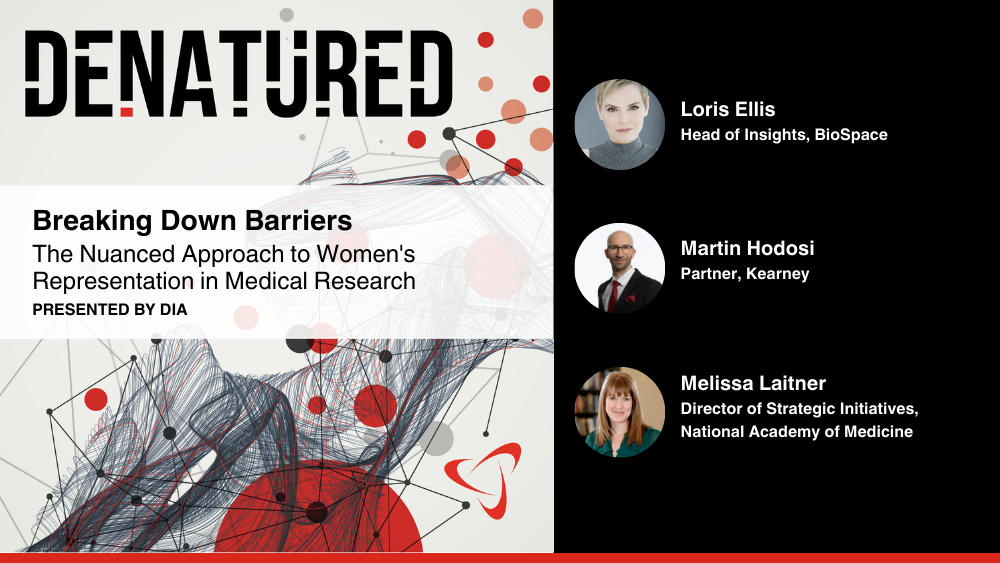Institute of Biomedical Research Corp. is pleased to provide the following update.
CAPE TOWN, SOUTH AFRICA / ACCESSWIRE / November 3, 2023 / Institute of Biomedical Research Corp. (OTC PINK:MRES), a vanguard entity at the forefront of nutraceutical biotechnology specializing in alternative plant-based cannabinoids, medical psilocybin, and cutting-edge mental health therapeutic research driven by artificial intelligence (AI), is pleased to provide the following update:
The Annual Biomedical Research & Innovation Platform Symposium took place on the 16 th & 17 th of October 2023, with Prof Vinesh Maharaj as the first keynote speaker of this two-day event that delved into an electrifying exploration of innovation, tradition, and groundbreaking potential in the realm of biomedicine. Professor Maharaj holds the esteemed position of Deputy Dean of Research and Postgraduate Education at the University of Pretoria and Chair of the M2Bio Sciences Discovery Centre for AI-Driven Phytomedicine Research .
Professor Maharaj’s presentation guides us on a historical journey of traditional plant-based medicine. It demonstrates how modern scientific insights can elucidate the mechanisms of action of various plants, fostering a collaborative partnership between traditional healers and conventional medical practitioners. Remarkably, more than half of all pharmaceutical drugs trace their origins to natural compounds, with 52% of medications being plant-derived. South Africa, boasting 24,000 plant species, ranks third globally in biodiversity. Notably, an impressive 20% of these species are unique to South Africa, found nowhere else in the world. To access the recording, please click here .
Maharaj highlights several well-known pharmaceuticals derived from plants, including Paclitaxel (PTX, used in cancer treatment), Quinine (an anti-malarial drug), Aspirin (with anti-inflammatory, analgesic, and antipyretic properties), and Morphine (an effective analgesic). Harnessing plants for drug development necessitates the identification of their active ingredients, a challenging task due to the multitude of compounds found in plants. This intricate process can take anywhere from 12 to 24 months to isolate, purify, and determine the structure of a single compound. In perspective, developing one FDA-approved drug typically demands screening through 10,000 compounds and may span several years.
The proposed solution to making this process more efficient involves creating a natural product library and employing artificial intelligence for efficient screening, a concept introduced at the 22:57-minute mark. The University of Pretoria, equipped with 11,000 plant samples, is actively working on establishing a comprehensive database. Furthermore, they have devised a high-throughput extraction method for screening, enabling the retrieval of samples from a robotic storage database for the subsequent generation of biological assays, facilitating the screening and analysis of potentially beneficial compounds.
At the 31:18-minute timestamp, Professor Vinesh discusses their compelling findings that demonstrate the efficacy of African ginger ( Siphonochilus aethiopicus ) against SARS-CoV-2, encompassing the Wuhan, delta, and beta variants, as well as influenza viruses. These effects were observed at concentrations comparable to standard control drugs used in respective assays[1]. Respiratory viral diseases, including COVID-19 and influenza, threaten global health, societal stability, and the economy. Despite the availability of numerous vaccines and treatments for these conditions, seasonal influenza alone still accounts for an estimated 3 to 5 million cases of severe illness and approximately 290,000 to 650,000 respiratory-related fatalities each year on a global scale. Consequently, there is a pressing need for the discovery and development of a more cost-effective and productive treatment regimen, ideally one with dual activity against these respiratory viral diseases, given the likelihood of co-infections[2]. The University of Pretoria has recently filed a patent for using African ginger in the fight against COVID-19, marking one of the leading research initiatives within M2Bio Sciences, an entity driven by artificial intelligence and machine learning, as highlighted at the 39:10-minute mark.
“Professor Vinesh Maharaj’s keynote presentation during the Annual Biomedical Research & Innovation Platform Symposium illuminated the potent antiviral properties of African ginger in combating both influenza and SARS-CoV-2. This revelation was underscored by the exceptional synergy of integrating natural remedies and artificial intelligence. Collectively, our findings unveil a promising trajectory for healthcare innovation, where the harmonious convergence of traditional approaches and cutting-edge technology is poised to have a profound impact on life-saving interventions,” articulated Jeff Robinson, Chief Executive Officer of M2Bio Sciences.
Professor Vinesh Maharaj, a distinguished figure in Research and Postgraduate Education within the Faculty of Natural and Agricultural Sciences, is a natural product chemist with expertise in discovering novel drug candidates derived from biodiversity samples. His primary objective centers around establishing a unique repository of natural products, encompassing a remarkable 10,000 plant specimens. This repository, a pioneering African endeavor, is the foundation for an innovative library. These plant samples are adeptly transformed into high throughput screening formats, primed for rigorous biological assessments to combat diseases like HIV, malaria, cancer, and COVID-19.
Through his efforts, he secured funding from the Department of Science and Innovation (DSI) to institute this pivotal platform, thus ensuring the availability of these invaluable resources to the national innovation system. This infrastructure is well-appointed with cutting-edge hyphenated analytical equipment, instrumental in the comprehensive chemical characterization of the library.
Furthermore, Professor Maharaj is the Chair of the M2Bio Sciences Discovery Centre for AI-Driven Phytomedicine Research, overseeing the natural product research endeavors conducted at the university on behalf of M2Bio Sciences.
To access the recording, please click here .
[1] https://repository.up.ac.za/handle/2263/78055 , Provisional Patent - Ref No.PA177413/P 1 and SA Patent Application No. 2022/11187 (Inventors - V. Maharaj, L. Invernizzi and P. Moyo).[2] https://journals.asm.org/doi/10.1128/jvi.01873-21
About Institute of Biomedical Research Corp./ DBA M2Bio Sciences
Institute of Biomedical Research Corp is a nutraceutical biotechnology company focused on alternative plant-based cannabinoids, medical psilocybin and mental health therapeutic research powered by artificial intelligence, and evidence-based sustainable products and solutions that develops and commercializes a range of CBD and mushrooms-based products under Dr. AnnaRx™, Medspresso™, Liviana™ brands as well as artificial intelligence-powered nutrition products and solutions under the M2Biome brand. In addition, our research and clinical trials with psilocybin are aimed at new therapies to help patients suffering from alcohol addiction, mental illness, and cardiovascular diseases. Our mission is to advance botanical-based medicine to the forefront by deploying best-practice science and medicine, clinical research, and emerging technologies such as artificial intelligence.
The Company is traded on the Over-the-Counter Bulletin Board of NASDAQ under the trading symbol “MRES”.
Publicly traded Company (OTC Pink: MRES)
www.m2bio.co
Forward-Looking Statements
Safe Harbour Statement - Besides historical information, this press release may contain forward-looking statements within the meaning of the Securities Act of 1933 and the Securities Exchange Act of 1934, as amended by the Private Securities Litigation Reform Act of 1995. Forward-looking statements contained in this press release include the intent, belief, or expectations of the Company and members of its management team concerning the Company’s future business operations and the assumptions upon which such statements are based. Prospective investors are cautioned that such forward-looking statements are not guarantees of future performance, involve risks and uncertainties, and that actual results may differ materially from those contemplated by such forward-looking statements. Factors that could cause these differences include, but are not limited to, failure to complete anticipated sales under negotiations, lack of revenue growth, client discontinuances, failure to realize improvements in performance, efficiency, and profitability, and adverse developments concerning litigation or increased litigation costs, the operation or performance of the Company’s business units or the market price of its common stock. Additional factors that could cause results to differ materially from those contemplated within this press release can also be found on the Company’s website. The Company disclaims any responsibility to update any forward-looking statements.
CONTACT:
Jeff RobinsonM2Bio Sciences+27 72 333 2148Email us hereVisit us on social media:
Facebook
Twitter
LinkedIn
InstagramYouTube
View source version on accesswire.com:
https://www.accesswire.com/799292/african-ginger-patented-for-influenza-and-sars-cov-2-treatment-insights-from-m2bio-sciences-research-chair




